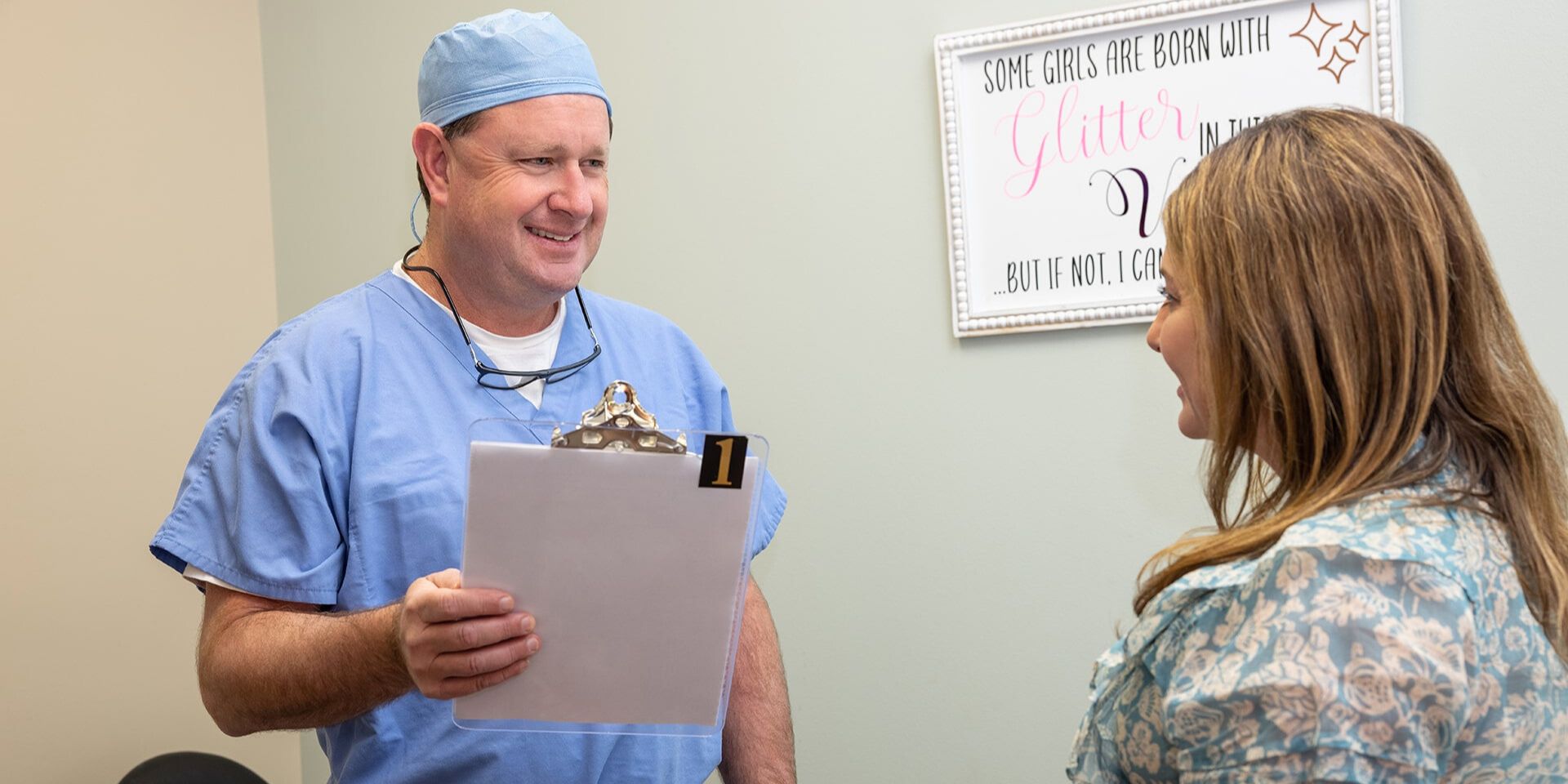When you have concerns about your vascular health or the health of a loved one, scheduling an appointment with a vascular surgeon is a crucial step towards diagnosis and prompt treatment. Knowing what to expect from your first appointment can help alleviate any anxiety and ensure you make the most of your visit.
In this blog post, we explain how to prepare for your appointment and what a typical examination entails. From the first meeting with your doctor at APEX Vascular to the development of your personalized treatment plan, our team is dedicated to partnering with you throughout your health journey.
Why Would Someone See a Vascular Surgeon?
People typically consult a vascular surgeon for reasons related to their venous or arterial health. Whether you have cosmetic concerns about varicose veins or are seeking a second opinion after being told you need a limb amputation, vascular surgeons provide a variety of services to help patients improve their overall quality of life.
We treat the following conditions at APEX Vascular:
- Peripheral Artery Disease (PAD)
- Deep Vein Thrombosis (DVT)
- Non-Healing Leg Wounds
- Aortic Aneurysm Repair
- Carotid Artery Disease
- Varicose Veins
- And more!
How Should Patients Prepare for Their Appointment at APEX Vascular?
Our goal is to help patients have the best vascular experience possible, and that starts before you even walk in our doors! Here’s what you should come prepared with at your APEX Vascular appointment:
- Medical records
- Insurance information
- Symptoms and medical history
- Questions
- A friend, family member, or caregiver

Medical Records
We encourage patients to bring along any relevant medical records, including previous operative reports, imaging studies (such as ultrasounds, CT scans, or MRIs), and lab results. CT scan discs from recent scans performed elsewhere are particularly useful. You should also prepare a list of all the current medications you are taking, including dosages.
Insurance Information
Bring your insurance card and understand your coverage details to facilitate a smooth administrative process at check-in. If you have been referred by another physician, there is a chance we have your insurance information. However, it’s still important to bring your insurance card with you to every appointment.
Symptoms and Medical History
Be prepared to discuss your symptoms in detail, as well as your comprehensive medical history. This includes any previous vascular issues or surgeries.
Questions
Jot down any questions or concerns you may have about your vascular condition or upcoming procedure. This ensures you get all the information you need during your visit.
A Friend, Family Member, or Caregiver
It can be helpful to bring a family member or close friend who can help answer questions and support you at your appointment! Spouses, parents, or partners can often chime in and provide valuable information that can sometimes be forgotten.
What Can You Expect During a Typical New Patient Appointment?
Your first appointment at APEX Vascular is designed to gather comprehensive information about your vascular health. It starts with check-in and registration, where patients complete paperwork and provide insurance information. This initial process usually takes 10-15 minutes.
Then, patients meet with a vascular surgeon or nurse practitioner who will review your medical history, discuss your current symptoms or concerns, and perform a focused physical examination if necessary.

If your first visit to APEX Vascular is for a Free Vein Screening, one of our providers will examine your legs for signs of varicose veins or other venous conditions.
If you’re seeking a second opinion for a more serious condition, we spend a significant amount of time reviewing your previous medical records, surgeries, and imaging studies. You may even need diagnostic tests like ultrasound imaging during your appointment. Depending on the complexity of your case, the total appointment duration typically ranges from 45 to 90 minutes.
After your examination and any necessary tests, your APEX Vascular doctor will discuss their findings, explain the diagnosis, and outline recommended treatment options. We work together with each individual patient to develop a personalized care plan, ensuring you understand all aspects of your condition and feel empowered to make informed decisions about your vascular health.
Questions to Expect
New patients should expect to be asked about their medical history, including any previous vascular issues, surgeries, or treatments. If you have had vascular surgery before, we’ll ask follow-up questions about when and where you had your procedure, if you have any stents or grafts, etc.
To pinpoint your diagnosis, you will likely be asked to describe your current symptoms in detail, including when they started and how they affect daily activities.
We also may ask questions about your exercise habits, diet, and smoking history. These lifestyle factors can help us assess your overall health and potential risk factors. If you have a family history of vascular diseases or related conditions, that can also help us with accurate diagnosis and personalized treatment planning.
Common Diagnostic Tests
Ultrasound imaging is one common diagnostic test during new patient appointments, which assesses blood flow and detects abnormalities in veins or arteries.
We’ll also perform physical examinations on the affected area(s), such as the legs, to identify signs of varicose veins or arterial insufficiency. These evaluations help to establish a baseline understanding of your vascular health and guide further diagnostic decisions.
Depending on your symptoms and medical history, additional tests like ankle-brachial index (ABI) measurements or duplex ultrasounds may be performed to evaluate peripheral artery disease (PAD) or other vascular conditions. We also typically get CT scans to evaluate any aortic aneurysms or blocked arteries in the neck.
Treatment Options and Follow-Up

We clearly communicate our findings and treatment options to patients, answering any questions you may have. We’ll even use visual aids like diagrams or models to illustrate complex conditions and procedures. Our goal is to always involve patients in decision-making, explaining the benefits, risks, and expected outcomes of each treatment option.
After your first appointment, you can expect tailored follow-up plans based on your initial assessment and treatment progress. This may include scheduled appointments to monitor healing and adjust treatment as needed. Further testing, such as follow-up ultrasound scans or vascular studies, may be conducted to track improvement or assess ongoing vascular health.
We’ll provide clear communication about expectations and any necessary lifestyle adjustments to ensure continued care and well-being. We typically see patients 1-2 weeks after surgery and within 1-2 weeks of getting imaging studies. If there are wounds or other reasons that a patient needs to be seen more quickly, we encourage you to call our office at 865-562-3232.
Request An Appointment at APEX Vascular
APEX Vascular offers compassionate, patient-centered care for a range of vascular conditions. Whether you’re seeking treatment for unsightly veins, managing peripheral artery disease, or need a second opinion, our team is dedicated to providing you with the highest quality of care. Your first appointment will lead to a comprehensive evaluation and personalized treatment plan.
Schedule your appointment today and take the first step towards better vascular health!

APEX Vascular is a vascular surgery and vein center with locations in Knoxville, Lenoir City, Crossville, Decatur, and Harrogate, TN. We are dedicated to delivering personalized, high-quality care that goes beyond medical treatment. Our exceptional vascular staff, boasting extensive experience in vascular surgery, works tirelessly to elevate the standards of patient care and contribute to your overall well-being. Visit us online or call us at 865-562-3232 to request an appointment today!









